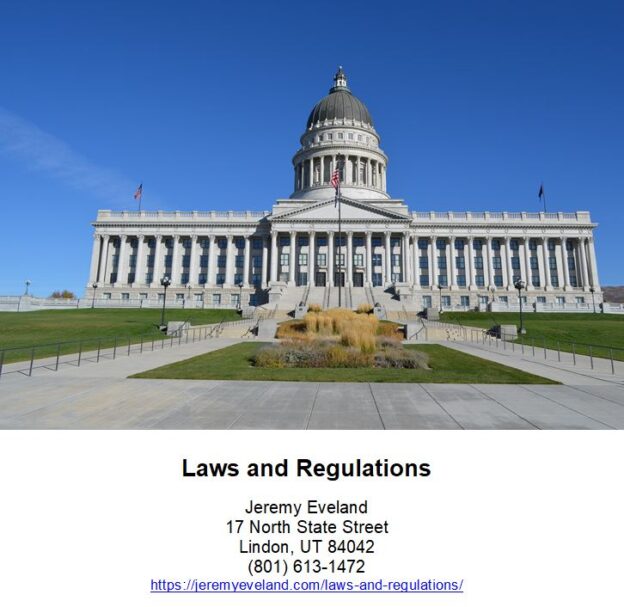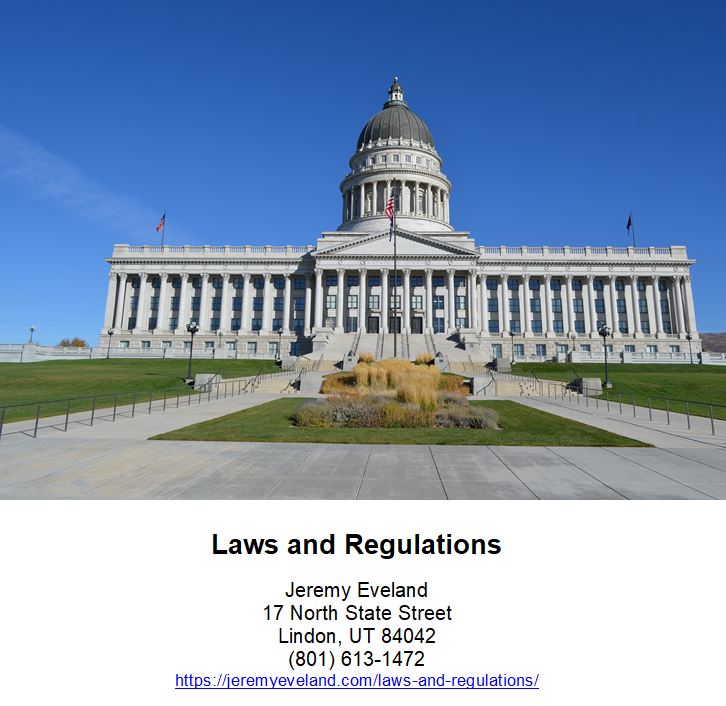The Probate Register is your comprehensive guide to navigating the complex world of probate law. Whether you’re facing the daunting task of managing the estate of a loved one or looking to plan for the future, our experienced attorney is here to provide the expertise and guidance you need. With a deep understanding of probate regulations, we offer a range of services to ensure a smooth and efficient process. From estate planning to asset distribution, our personalized approach will help you protect your assets and secure your family’s future. Contact us today to schedule a consultation and let us take care of your probate needs.

What is probate register
Definition of probate register
A probate register is a legal record or database that contains information about estates and the probate process. It serves as a comprehensive repository of documents and records related to the administration of an individual’s assets after their death. The probate register includes details such as the deceased person’s will, assets, liabilities, beneficiaries, and the distribution of their estate.
Role of probate register
The probate register plays a crucial role in facilitating the probate process. It serves as a centralized system that maintains and organizes relevant information, making it easily accessible for interested parties. This includes beneficiaries, creditors, legal professionals, and the general public. The register ensures that all necessary documents and details are recorded accurately, providing transparency and legal compliance throughout the probate proceedings.
Importance of probate register
The probate register holds immense importance within the legal system and estate administration. It serves several essential purposes, including:
-
Evidential value: The probate register serves as a legal record of an individual’s last wishes and their estate’s distribution. It provides evidence that the probate process has been carried out in accordance with the deceased person’s intentions, ensuring the legitimacy and validity of the proceedings.
-
Asset protection: The probate register helps safeguard the deceased person’s assets by ensuring they are distributed to the rightful beneficiaries. It prevents fraudulent activities and unauthorized transfers, ensuring that the estate assets are properly accounted for and protected.
-
Dispute resolution: In cases where disputes arise regarding the distribution of an estate, the probate register serves as an essential source of information. It helps resolve conflicts by providing an accurate account of the deceased person’s intentions, ensuring fair and just outcomes.
-
Beneficiary rights: The probate register plays a crucial role in protecting the rights of beneficiaries. It ensures that they receive their rightful inheritance and provides them with a means to access information regarding the administration of the estate.
The Probate Process
Overview of probate
Probate is the legal process through which a deceased person’s assets are managed and distributed. It involves validating and executing the deceased person’s will, paying off any outstanding debts and taxes, and distributing the remaining assets to the rightful beneficiaries. Probate ensures that the deceased person’s wishes are carried out and provides a legal framework for the administration of their estate.
Steps involved in the probate process
The probate process typically involves several key steps:
-
Petition for probate: The process begins with filing a petition with the probate court requesting the initiation of probate proceedings. The court then verifies the authenticity of the will and appoints an executor or administrator to oversee the administration of the estate.
-
Asset inventory: The appointed executor identifies and takes control of the deceased person’s assets. This involves creating an inventory of all assets, including bank accounts, real estate, investments, and personal belongings.
-
Debt settlement: The executor is responsible for identifying and settling any outstanding debts or liabilities of the deceased person. This includes paying off creditors, resolving outstanding bills, and addressing any tax obligations.
-
Distribution of assets: Once all debts have been settled, the remaining assets are distributed to the beneficiaries according to the deceased person’s will or the applicable laws of intestacy if there is no will.
-
Probate court approval: Throughout the probate process, the executor must seek court approval for various actions, such as the sale of assets, the payment of taxes, and the distribution of assets. The court reviews these actions to ensure they comply with legal requirements.
Probate court and its role
The probate court is a specialized court that handles matters related to the administration of estates. It has jurisdiction over probate proceedings and oversees the proper distribution of a deceased person’s assets. The court appoints an executor or administrator to manage the estate and provides legal guidance throughout the probate process. It reviews and approves actions taken by the executor, ensuring that they comply with applicable laws and regulations.
Purchase The Probate Register Here
Understanding Probate Register
Explanation of probate register
The probate register is a central registry or database that records and maintains important information related to the probate process. It serves as an official record of probate proceedings, capturing details regarding the deceased person’s assets, liabilities, beneficiaries, and the distribution of their estate. The register ensures that all relevant information is recorded accurately and is easily accessible to those involved in the probate process.
What is recorded in the probate register
The probate register records a wide range of information, including:
-
Deceased person’s details: The register includes the deceased person’s name, date of death, and their last known address. This information helps in identifying the individual and associating their assets with the probate proceedings.
-
Will and testamentary documents: The register contains a copy of the deceased person’s will, enabling interested parties to verify the authenticity and content of the will. It also includes any other testamentary documents, such as codicils or revocations.
-
Asset inventory: The register records a comprehensive inventory of the deceased person’s assets, including bank accounts, real estate, investments, personal belongings, and any other valuable items. This provides a clear picture of the estate’s value and assists in the proper administration and distribution of assets.
-
Liabilities and debts: Details of any outstanding debts, loans, mortgages, or other financial liabilities are recorded in the probate register. This ensures that these obligations are properly addressed and settled before the distribution of assets to beneficiaries.
-
Beneficiary information: The register lists the names and contact information of all beneficiaries entitled to receive a share of the deceased person’s estate. It helps in ensuring that beneficiaries’ rights are protected and they receive their rightful inheritance.
Purpose of maintaining a probate register
Maintaining a probate register serves multiple purposes:
-
Legal compliance: The probate register helps ensure compliance with legal requirements by accurately capturing and documenting all relevant information related to the probate process. It facilitates the administration of estates in accordance with applicable laws and regulations.
-
Transparency and accountability: By maintaining a probate register, the probate process becomes transparent and accessible to interested parties. It allows beneficiaries, creditors, legal professionals, and the general public to verify the legitimacy of the proceedings and ensures accountability in the administration of the estate.
-
Recordkeeping and future references: The probate register serves as a vital recordkeeping tool, preserving important information about the deceased person’s estate for future references. It provides a historical record of the probate proceedings, helping to resolve any potential disputes or issues that may arise at a later date.
Accessing the Probate Register
Accessibility options for the general public
The probate register is designed to be accessible to the general public, ensuring transparency and accountability in the probate process. There are several ways in which the public can access the probate register:
-
In-person visits to the probate court: Interested individuals can physically visit the probate court and request access to the probate register. Court staff can assist in locating and retrieving the desired records, allowing individuals to review and obtain copies of relevant documents.
-
Publicly available indexes and records: Some probate courts make certain portions of the probate register available online or in public archives. This allows individuals to search for specific cases or records using the deceased person’s name or other relevant details.
Requirements to access the probate register
While the probate register is accessible to the public, certain requirements and restrictions are in place to ensure the proper use and protection of the information:
-
Identification: Individuals requesting access to the probate register may be required to provide valid identification, such as a driver’s license or passport. This helps in verifying their identity and ensures that the information is accessed by authorized individuals.
-
Purpose of access: Some probate courts may require individuals to provide a valid reason or purpose for accessing the probate register. This is to prevent misuse or unauthorized access to sensitive information.
-
Fees and charges: Depending on the jurisdiction, there may be fees associated with accessing the probate register. These fees cover administrative costs and ensure the maintenance and availability of the register for public use.
Online access to the probate register
With advancements in technology, many probate courts are now offering online access to the probate register. This allows individuals to search for and retrieve probate records from the convenience of their own homes or offices. Online access typically requires registration or subscription, and some courts may charge a fee for accessing records electronically. Online platforms also provide additional search tools and functionalities to enhance the user experience and facilitate efficient record retrieval.

Benefits of the Probate Register
Transparency in the probate process
The probate register promotes transparency in the probate process by making important information available to interested parties. It allows beneficiaries, creditors, and the general public to access relevant probate records and verify the legitimacy of the proceedings. This transparency helps build trust and confidence in the administration of estates, reducing the potential for disputes or misunderstandings.
Avoidance of fraudulent activities
By maintaining a comprehensive probate register, the potential for fraudulent activities is minimized. The register acts as an official record of probate proceedings, providing evidence of the deceased person’s intentions and the proper distribution of their assets. This discourages fraudulent claims, unauthorized transfers, and other illicit activities that may compromise the integrity of the probate process.
Protection of beneficiaries’ rights
The probate register plays a crucial role in protecting the rights of beneficiaries. It ensures that their entitlement to the deceased person’s estate is accurately recorded and preserved. Beneficiaries can rely on the information contained in the register to verify their rights, monitor the progress of the probate process, and take appropriate action if any discrepancies or issues arise. This protection helps safeguard beneficiaries’ interests and ensures fair and equitable distribution of the estate.
Challenges and Limitations
Privacy concerns and data protection
While the probate register promotes transparency, it also raises privacy concerns and the need for data protection. The register contains sensitive personal information, such as the deceased person’s address, financial details, and beneficiaries’ information. Safeguards must be in place to ensure that this information is accessed only by authorized individuals and that it is protected from unauthorized use or disclosure.
Legal restrictions on accessing certain information
Certain information recorded in the probate register may be subject to legal restrictions and confidentiality. For example, in cases involving child beneficiaries, the court may limit the public disclosure of their personal information for their protection. Additionally, there may be restrictions on accessing information related to ongoing probate proceedings or cases involving sensitive issues. These legal restrictions aim to strike a balance between transparency and privacy, ensuring that the probate process is conducted in a fair and secure manner.
Potential delays in updating the register
Maintaining an up-to-date probate register can present challenges due to administrative processes and resource limitations. The registration of probate records may take time, especially in cases where the court deals with a high volume of probate matters. This can result in delays in updating the register, potentially affecting the availability of the most recent information. However, efforts are continually made to streamline and expedite the registration process to minimize these delays.
Probate Register and Estate Planning
How the probate register impacts estate planning
The probate register has a significant impact on estate planning as it helps individuals ensure that their last wishes are properly documented and carried out. By creating a legally valid will and registering it with the probate register, individuals can provide clear instructions regarding the distribution of their assets and the appointment of executors. This reduces the likelihood of disputes and confusion among beneficiaries and ensures that the probate process is streamlined and efficient.
Using the probate register to plan future arrangements
Individuals can also utilize the information available in the probate register to plan for their own future arrangements. By reviewing the probate records of similar cases or situations, individuals can gain insights into potential challenges and pitfalls they may need to address in their own estate planning. This proactive approach allows individuals to make informed decisions and take necessary steps to minimize complications and maximize the effectiveness of their own probate process.
Minimizing potential disputes through proper registration
Proper registration of wills and related documents with the probate register can help minimize potential disputes and challenges. When a will is registered, it becomes a legal and public record, making it difficult for anyone to dispute its authenticity or validity. This discourages beneficiaries, creditors, or other interested parties from contesting the will, as they are aware that it has been officially recorded and is subject to legal scrutiny. Proper registration offers peace of mind and ensures that the deceased person’s wishes are upheld without unnecessary delays or conflicts.
Probate Register vs. Will Registry
Differences between probate register and will registry
Although the terms “probate register” and “will registry” are often used interchangeably, they refer to distinct concepts:
-
Probate register: The probate register is a comprehensive record of probate proceedings, including all relevant documents and information related to the administration of estates. It captures a wide range of details beyond just the will, such as asset inventories, beneficiary information, and debt settlements.
-
Will registry: A will registry specifically refers to a centralized system for registering and recording wills. It focuses solely on verifying and recording the existence of wills, making it easier for interested parties to search for and identify registered wills.
Which option is more suitable for your needs
The suitability of either the probate register or the will registry depends on your specific needs and preferences. If you are interested in accessing comprehensive information about probate proceedings, including asset inventories, debts, and beneficiaries, the probate register is the more suitable option. On the other hand, if you are specifically looking to verify the existence of a will or locate a registered will, a will registry may be more appropriate.
Complementary use of both registers
In many cases, utilizing both the probate register and the will registry can be advantageous. The probate register provides a comprehensive overview of the entire probate process, capturing all relevant details and documents. At the same time, a will registry allows for a faster and more targeted search for specific wills. By using both registers in tandem, interested parties can obtain a more comprehensive understanding of the probate proceedings and the deceased person’s intentions.

Contesting a Probate Register Entry
Grounds for contesting an entry
Contesting a probate register entry is a legal process that requires valid grounds. Some common grounds for contesting an entry include:
-
Lack of testamentary capacity: If there are concerns regarding the deceased person’s mental capacity at the time of creating the will, interested parties may contest the entry. They may argue that the deceased person did not have the necessary mental capacity to understand the implications of their decisions.
-
Undue influence or coercion: If there is evidence to suggest that the deceased person was influenced or coerced into making specific provisions in the will, interested parties may contest the entry. They may argue that the deceased person’s true intentions were not reflected in the will due to external influence.
-
Fraud or forgery: If there are suspicions of fraud or forgery in relation to the will or any probate documents, interested parties may contest the entry. They must present evidence to support their claims and demonstrate that the entry should be deemed invalid.
Legal process for challenging a register entry
Challenging a probate register entry typically involves the following legal process:
-
Consultation with legal experts: Interested parties should seek legal advice from professionals experienced in probate and estate law. This ensures that they understand their rights, have a clear understanding of the grounds for challenging the entry, and can navigate the legal complexities involved in contesting a probate register entry.
-
Filing a legal claim: Interested parties must file a legal claim with the appropriate court, outlining their grounds for challenging the entry. This claim initiates the legal process and notifies all relevant parties of the challenge.
-
Gathering evidence: To support their claim, interested parties must gather and present relevant evidence. This may include witness testimonies, medical records, expert opinions, or any other documentation that supports their argument.
-
Court proceedings: Once the claim is filed, the court will schedule hearings and proceedings to assess the validity of the challenge. The interested parties, as well as other beneficiaries and executors, will have an opportunity to present their case and provide evidence in support of their positions.
-
Court decision: After considering all the evidence and arguments, the court will make a decision regarding the validity of the probate register entry. The court’s decision may result in the entry being upheld, modified, or declared invalid. The interested parties must comply with the court’s decision and take any necessary actions based on the outcome.
Seeking professional legal assistance
Challenging a probate register entry is a complex legal process that requires expertise in probate and estate law. Interested parties are strongly advised to seek professional legal assistance from attorneys specializing in probate matters. These attorneys have the experience and knowledge to navigate the legal complexities involved in challenging a register entry and can provide the necessary guidance and representation throughout the process.
Probate Register Services
Role of attorneys in probate register services
Attorneys play a crucial role in delivering probate register services. They provide legal expertise and guidance to individuals and families navigating the probate process, ensuring compliance with applicable laws and regulations. Attorneys assist in various aspects, including:
-
Drafting and reviewing legal documents: Attorneys help individuals create and review legal documents, such as wills, trust agreements, and powers of attorney. They ensure that these documents accurately reflect the individual’s intentions and are legally valid.
-
Probate administration: Attorneys guide and assist executors or administrators in carrying out their duties and responsibilities throughout the probate process. They provide advice on asset inventory, debt settlement, beneficiary rights, and other relevant matters.
-
Contested probate matters: In cases where a probate register entry is contested, attorneys provide representation and legal advocacy to interested parties. They analyze the grounds for contestation, gather evidence, and present a strong case before the court.
Benefits of hiring an attorney for probate matters
Hiring an attorney for probate matters offers several benefits:
-
Legal expertise: Attorneys have specialized knowledge of probate and estate law. They stay updated with relevant legal developments and can provide accurate and personalized advice based on an individual’s unique circumstances.
-
Guidance and support: Probate can be a complex and emotionally challenging process. Attorneys offer guidance and support, helping individuals navigate the legal complexities, understand their rights and responsibilities, and make informed decisions.
-
Efficiency and compliance: Attorneys streamline the probate process, ensuring compliance with legal requirements and reducing the likelihood of errors or delays. Their expertise helps expedite the administration of estates and minimize potential complications.
-
Dispute resolution: In cases where disputes or conflicts arise, attorneys act as mediators and advocates for their clients. They work towards amicable resolutions and, if necessary, provide strong legal representation to protect their clients’ interests.
Finding the right attorney for probate register needs
Finding the right attorney for probate register needs involves careful consideration and research. Some key factors to consider include:
-
Experience and expertise: Look for attorneys with specific experience in probate and estate matters. Their expertise in these areas is crucial for providing accurate legal advice and effective representation.
-
Reputation and track record: Research the attorney’s reputation and track record. Seek recommendations from trusted sources and review client testimonials or case results to assess their quality of service.
-
Compatibility and communication: Choose an attorney with whom you feel comfortable and can communicate easily. Effective communication is essential for a successful attorney-client relationship.
-
Cost and fee structure: Discuss the attorney’s fees and fee structure upfront to ensure transparency and avoid any surprises. Clarify billing arrangements and inquire about potential additional costs that may arise during the probate process.
By carefully considering these factors, individuals and families can find the right attorney to meet their probate register needs and ensure a smooth and efficient probate process.
In conclusion, the probate register serves as a critical resource in the administration of estates and the probate process. Its comprehensive record-keeping and accessibility promote transparency and accountability while protecting the rights of beneficiaries. Accessing the probate register, either in person or online, allows interested parties to gather important information, plan for the future, and resolve any potential disputes. While the probate register has its challenges and limitations, seeking professional legal assistance from experienced attorneys can help navigate these complexities and ensure compliance with applicable laws. Whether utilizing the probate register alone or in combination with a will registry, individuals can benefit from their comprehensive and complementary roles in estate planning and administration.





